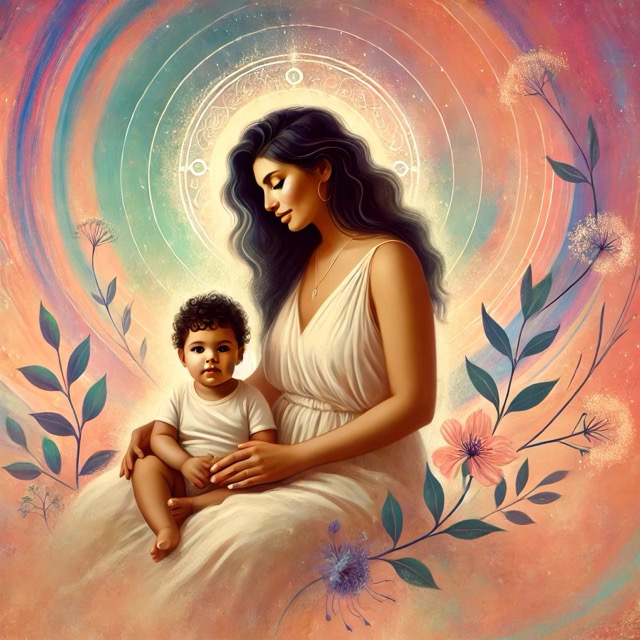Kamala Harris on IVF and Reproductive Freedom: Impact on Women and Motherhood Amid Abortion Ban

On September 17, 2024, Vice President Kamala Harris issued a strong statement regarding Senate Republicans’ decision to block nationwide protections for in vitro fertilization (IVF). This moment is emblematic of the larger political battle surrounding reproductive rights in the United States—a fight that has escalated since the overturning of Roe v. Wade in 2022. As reproductive freedom faces unprecedented legal and legislative challenges, the future of IVF, a critical fertility treatment for countless couples, hangs in the balance. But what does this mean for women who wish to become mothers? How does this connect with the abortion ban, and what might the future hold for reproductive healthcare in America?

The Importance of IVF for Women and Families
In vitro fertilization (IVF) is a medical procedure that helps people who struggle with infertility to conceive. It involves retrieving eggs from a woman’s ovaries, fertilizing them with sperm in a lab, and then implanting the fertilized egg (embryo) into the woman’s uterus. For millions of women worldwide, IVF is often their last hope to achieve their dream of motherhood.
According to the Centers for Disease Control and Prevention (CDC), approximately 12% of women aged 15-44 in the U.S. experience difficulty in getting pregnant or carrying a pregnancy to term. IVF has become a lifeline for these individuals, with over 1 million babies born in the U.S. alone through assisted reproductive technology (ART) since 1987. As such, IVF is not merely a fertility treatment but a pathway to family-building for those faced with infertility—a reality that makes legislative actions affecting this treatment profoundly personal.
How the Abortion Ban Is Affecting IVF
Since the Supreme Court’s decision to overturn Roe v. Wade, many states have enacted strict abortion bans, some of which complicate access to IVF treatment. Vice President Harris’ statement draws a direct connection between these restrictions on abortion and the broader reproductive freedom landscape. Although IVF and abortion may seem like opposite ends of the reproductive spectrum—one aiming to create life and the other allowing women to terminate pregnancies—they are deeply interrelated in the context of reproductive rights.
Here’s how:
Personhood Laws: Some abortion bans include “personhood” provisions that grant embryos and fetuses legal rights from the moment of conception. If an embryo is considered a legal person, doctors and clinics providing IVF services could be legally restricted or even criminalized for discarding embryos that are not viable, or for the common IVF practice of selecting the healthiest embryo for implantation.
Embryo Management: In IVF treatments, not all embryos are implanted, and some may be discarded or frozen for future use. With restrictive abortion laws, questions arise over whether discarding unused embryos would constitute a crime. This ambiguity is already causing fertility clinics to hesitate or alter their protocols, as they try to navigate the complex web of emerging legal risks.
Impact on Providers: Fertility specialists and clinics might face lawsuits or even criminal charges in states with broad personhood laws. The fear of litigation could limit the availability of IVF in certain states, making it harder for women to access the treatment they need.
As Harris pointed out, the refusal of Senate Republicans to protect IVF is not a singular event. It is part of a broader attack on reproductive autonomy that has intensified since the Dobbs v. Jackson Women’s Health Organization decision, which overturned Roe and allowed individual states to determine their abortion laws.
The Politics of Reproductive Freedom
Vice President Harris’ statement emphasized that the current Republican opposition to protecting IVF access is part of a wider strategy to undermine women’s reproductive rights, which includes not only abortion restrictions but also opposition to contraception access and family planning options. She criticized Republicans for proposing four national abortion bans since the overturning of Roe v. Wade, and highlighted the fact that these legislative efforts are out of sync with the majority of Americans, who support access to fertility treatments and reproductive healthcare.
This is key: While the abortion debate often dominates the conversation about reproductive rights, Harris underscores that this is about much more than terminating pregnancies. It’s about the ability of women to make informed choices about their bodies, whether that involves contraception, abortion, or fertility treatments like IVF. By blocking IVF protections, lawmakers are limiting a woman’s right to build a family, which for many is just as personal and life-altering as the right to end a pregnancy.
The Intersection of Feminism, Motherhood, and Reproductive Rights
For women who dream of becoming mothers but face infertility, the intersection of IVF and reproductive politics is a harsh reality. The struggle to control one’s reproductive destiny—whether it’s the right to access an abortion or the right to access fertility treatment—is inherently a feminist issue. Both sides of this debate revolve around bodily autonomy and the right of women to make decisions that profoundly affect their lives.
Many feminists view the restriction of IVF as an extension of patriarchal control over women’s bodies. It sends a message that a woman’s role in society is to reproduce, yet the same lawmakers who push for women to bear children are simultaneously placing obstacles in the way of those who need medical assistance to do so.
For mothers, or those who wish to become mothers, this creates a paradox. On one hand, society praises motherhood and the nurturing role of women; on the other hand, policies and legislation are being put in place that make it increasingly difficult for women to become mothers on their own terms. For mothers in particular, the fight for reproductive rights is not just about the right to an abortion—it’s about the right to choose how, when, and if they become parents.
What’s Next for IVF and Reproductive Freedom?
As Harris highlighted, there is overwhelming public support for protecting access to IVF and other fertility treatments. A survey conducted by the Pew Research Center in 2022 showed that a majority of Americans, across party lines, support fertility treatments like IVF. Even among those who identify as conservative or Republican, there is significant backing for the idea that couples should be able to seek medical assistance to have children.
The future of IVF, however, remains uncertain, especially in states with strict abortion bans that could extend to fertility treatments. The actions of Congress will be crucial in determining whether nationwide protections for IVF can be put into place, or if the patchwork of state laws will continue to restrict access for women across the country.
Conclusion: The Need for Comprehensive Reproductive Freedom
Vice President Kamala Harris’ statement serves as a rallying cry for those who believe in reproductive freedom in all its forms. IVF, once a symbol of hope for couples struggling with infertility, is now caught in the crosshairs of the broader political battle over reproductive rights. For women who wish to become mothers, the future of IVF will depend on the outcome of this battle. Access to fertility treatments is just as much a part of reproductive freedom as access to abortion and contraception, and both are essential for allowing women to fully control their reproductive destinies.
As women and mothers navigate these challenges, it is clear that the fight for reproductive freedom is not just about the right to choose not to have a child—it’s about the right to choose to have one as well. Protecting IVF is, therefore, about more than just fertility treatments. It’s about ensuring that every woman, regardless of where she lives or her political affiliation, has the ability to make the choices that are right for her and her family.
Read the full statement by Kamala Harris on the WhiteHouse.gov website.





Responses